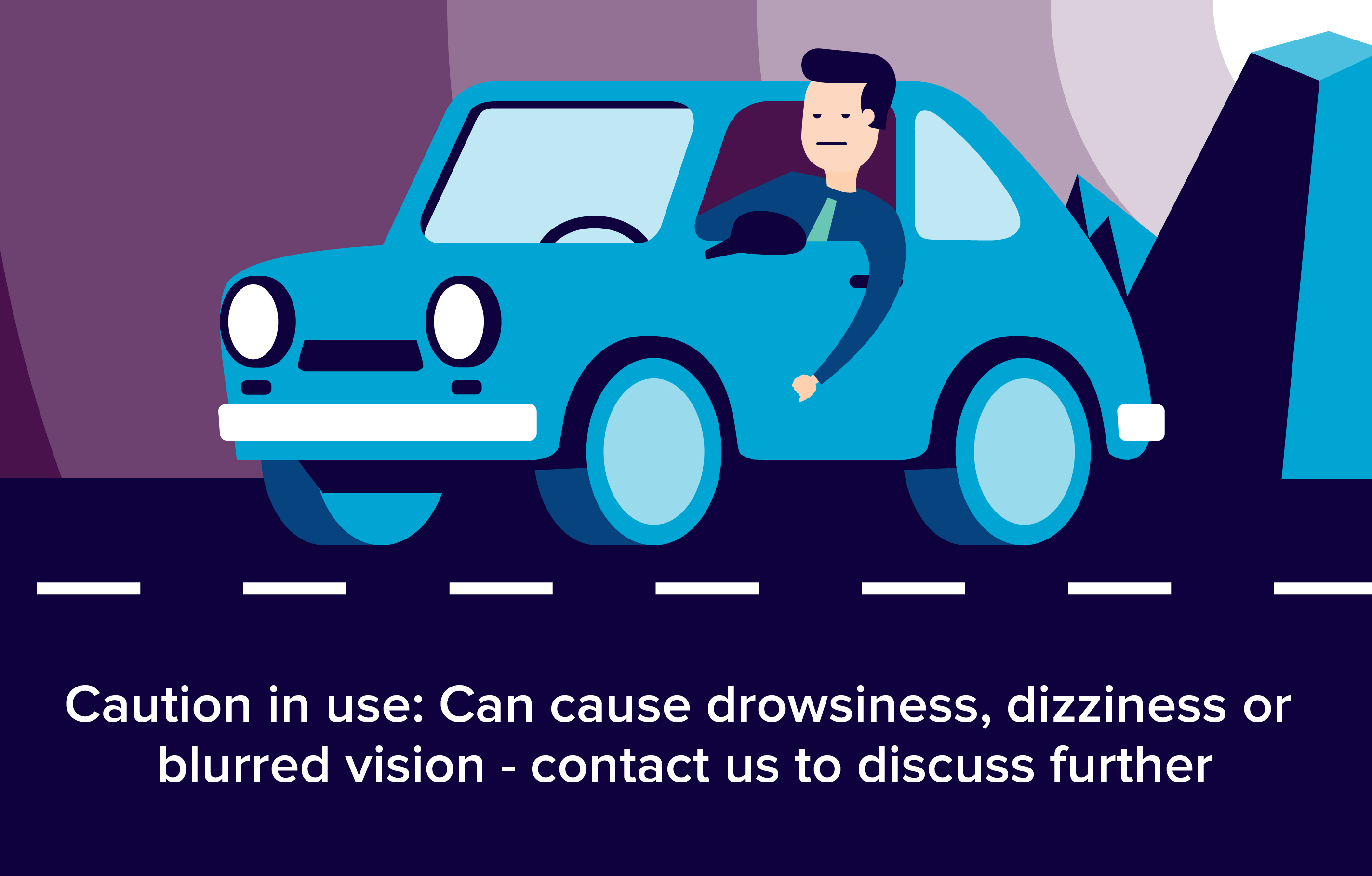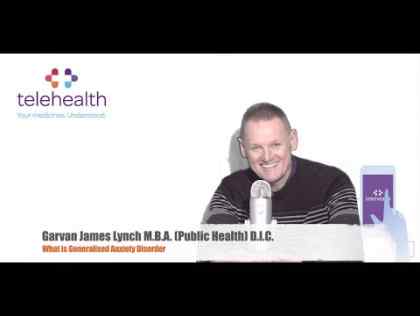Anxicalm is used for: Anxiety and problems sleeping (insomnia). Muscle spasms (cramps) such as those caused by cerebral spasticity. Epilepsy (fits). Making you relaxed before an operation (premedication)

Why have I been prescribed Anxicalm?
Anxicalm is used for:
- Anxiety and problems sleeping (insomnia).
- Muscle spasms (cramps) such as those caused by cerebral spasticity.
- Epilepsy (fits).
- Making you relaxed before an operation (premedication).
How does it work?
Anxicalm belongs to a group of medicines called benzodiazepines. These work by increasing the amount of a certain chemical in the brain which calms the brain down and stops the nerves firing inappropriately.
When and how do I take it?
- Always take Anxicalm exactly as your doctor has told you. You should check with your doctor if you are not sure.
- You will be started on a low dose of Anxicalm. Your doctor will slowly increase it until you are taking the right dose for you. Your doctor will give you the lowest possible dose that works for you.
- Your doctor will want you to take Anxicalm for the shortest possible time.
What’s the dose?
Adults
Treatment for anxiety
- The maximum dose is 30 mg a day, split into several doses. You will normally take this medicine for no more than 12 weeks.
Treatment for problems sleeping (insomnia)
- The usual dose is between 5 mg and 15 mg, taken just before going to bed.
- It is important that you have 7 to 8 hours of undisturbed sleep after taking Anxicalm.
- You will normally take this medicine for no more than 4 weeks.
Treatment for muscle spasms (cramps)
- The maximum dose is 15 mg a day, split into several doses.
Treatment for muscle spasms in cerebral spasticity
- The maximum dose is 60 mg a day, split into several doses.
To help you relax before an operation (premedication)
- The usual dose is between 5 mg and 20 mg.
Could it interact with other tablets?
Please tell your doctor or pharmacist if you are taking or have recently taken any other medicines. This
includes medicines that you buy without a prescription and herbal medicines. This is because Anxicalm can
affect the way some other medicines work. Also some other medicines can affect the way Anxicalm works.
In particular, tell your doctor or pharmacist if you are taking any of the following medicines:
- Fluvoxamine, fluoxetine or other medicines to treat mental health problems.
- Medicines to help you sleep.
- Medicines for allergies, which make you sleepy.
- Phenytoin or other medicines to treat epilepsy.
- Cimetidine, omeprazole or cisapride (to treat stomach problems and heartburn).
- Ketoconozole (to treat fungal skin infections).
- Strong painkillers (such as morphine).
If any of the above apply to you, or if you are not sure, talk to your doctor or pharmacist before you take Anxicalm.
Herbal products should also only be taken after talking with your doctor.
What are the possible risks or side-effects?
Like all medicines Anxicalm can cause side effects, although not everybody will get them.
Stop taking Anxicalm and see a doctor straight away if you notice any of the following serious side effects – you may need urgent medical treatment:
- -Chest pain which may spread to your neck and shoulders and down your left arm. This may be a sign of a heart attack.
- -Breathing problems (respiratory depression). Early signs include suddenly noisy, difficult and uneven breathing. Your skin may become blue.
- -A feeling of fullness in your bladder and the urge to pass water, but then difficulty emptying your bladder.
- -Being restless, aggressive, angry, irritable or agitated.
- -Nightmares and seeing or hearing things that are not really there (hallucinations).
- -Mental problems such as delusions (believing in things that are not real) or losing contact with reality.
- -A change in your behaviour that is out of character.
When you start taking Anxicalm you may notice the following effects:
- Feeling tired.
- Weak muscles.
These effects usually go away after some time. If you are worried or unsure, talk to your doctor or pharmacist.
The following effects may occur at any time during your treatment:
- Mind and nervous system
- Poor co-ordination, including feeling unsteady when you walk.
- Slowing or slurring of speech.
- Headache.
- Feeling dizzy.
- Uncontrollable movements, for example of your hands (tremor).
- Difficulty remembering new things.
- Confusion.
- Depression.
- Being less alert.
Liver and kidneys
- Changes in how well your liver is working (shown by blood tests).
- Loss of bladder control (wetting yourself).
- Yellowing of your skin or the white of your eyes (jaundice).
Stomach and gut
- Feeling sick (nausea).
- Constipation.
- Dry mouth.
- More saliva in your mouth than usual.
Heart and circulation
- Low blood pressure. The signs include feeling dizzy or light-headed.
- Uneven heart beat.
Eyes and ears
- Problems with your eye-sight, including double or blurred vision.
- Vertigo. The signs include feeling dizzy or a spinning sensation.
Skin
- Skin rashes.
Sexual
- A higher or lower interest in sex.
Withdrawal symptoms
- You can become dependent on benzodiazepine medicines, like Anxicalm. This means that if you stop treatment suddenly, or lower the dose too quickly, you may get withdrawal symptoms. The symptoms can include:
- Headache.
- Muscle pain and feeling restless.
- Feeling very worried, tense, confused or bad tempered.
Can I drink alcohol while taking it?
Do not drink alcohol with this medicine.
What if I’m pregnant/breastfeeding?
- Talk to your doctor before taking Anxicalm if you are pregnant, trying to get pregnant, or breast-feeding. Your doctor will then decide if you should take Anxicalm. This is because Anxicalm will affect your baby.
- If you are already taking Anxicalm talk to your doctor immediately, he will decide if you should stop taking this medicine.
- If you have any more questions please ask your Pharmacist.
Remember to keep all medicines out of reach of children
Please Note: We have made every effort to ensure that the content of this information sheet is correct at time of publish, but remember that information about drugs may change. This sheet does not list all the uses and side-effects associated with this drug. For full details please see the drug information leaflet which comes with your medicine. Your doctor will assess your medical circumstances and draw your attention to any information or side-effects which may be relevant in your particular case.
References:
1. Medicines.ie website- anxicalm SPC http://www.medicines.ie/medicine/3639/SPC/Anxicalm+Tablets/
2. Medicines.ie- anxicalm PIL http://www.medicines.ie/medicine/8293/PIL/Anxicalm+Tablets/


